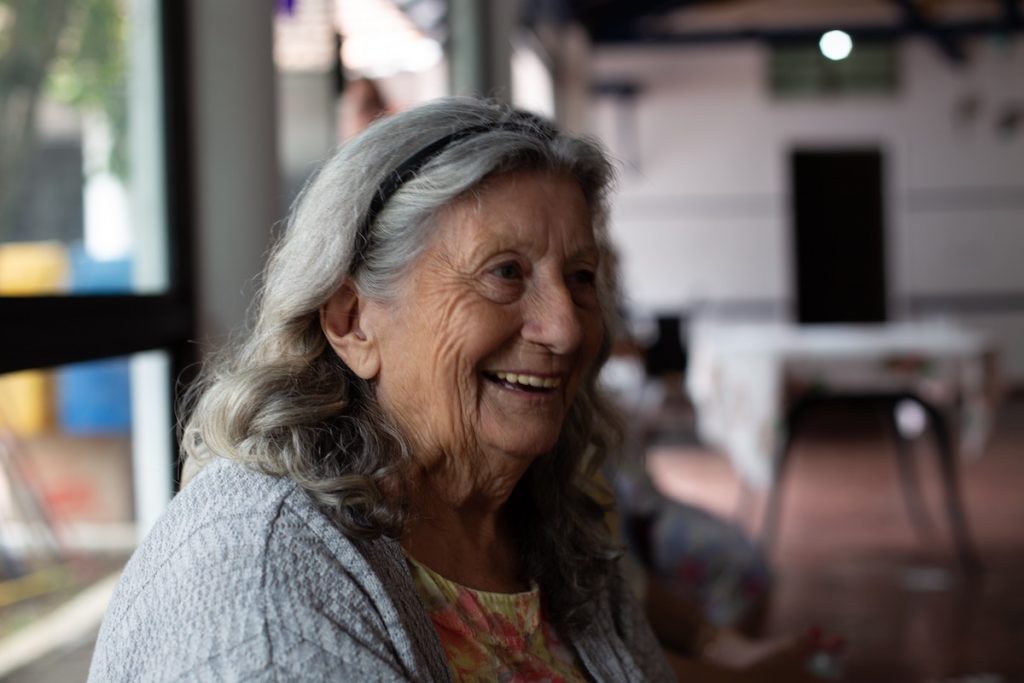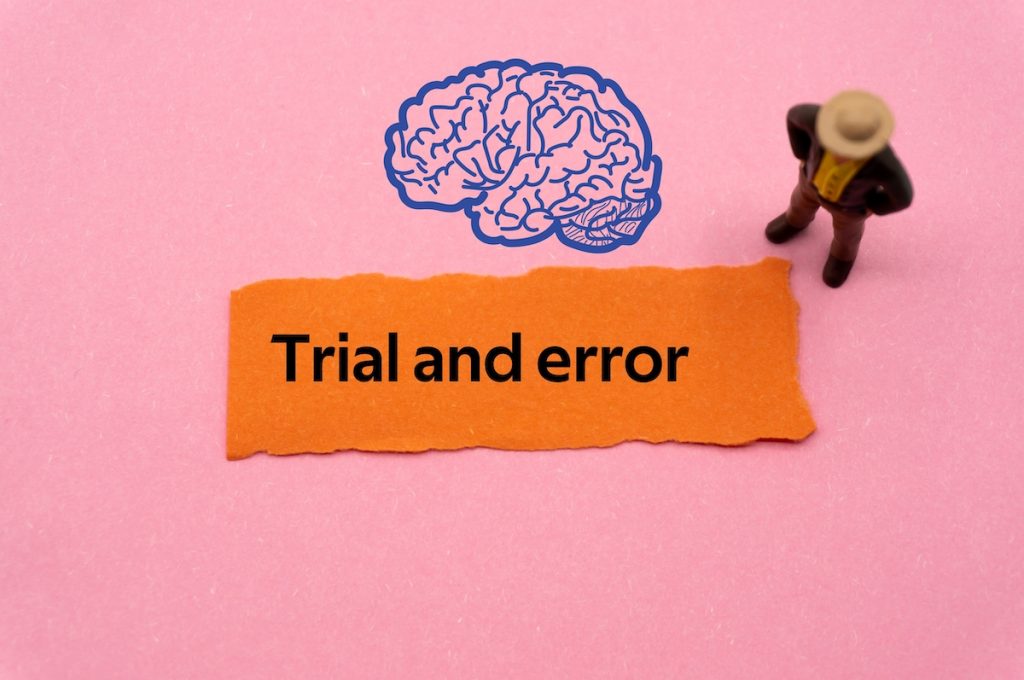
Dementia impacts around 55 million individuals worldwide (WHO, 2022), also impacting dementia carers who may also experience emotional and physical strain. The COVID-19 pandemic affected everyone, but significantly those diagnosed with dementia and/or their carers due to increased levels of loneliness and social isolation. Providing adequate psychosocial support to carers indirectly benefits people with dementia and their quality of life. Therefore, it is deemed important to identify effective interventions that can be delivered online, during the lockdowns or ‘stay at home’ policies.
Psychodrama, established by psychiatrist Moreno in the early 1900s, is a therapeutic technique that uses role theory to allow participants to understand differing points of view (Britannica, 2008). Seen as “individual therapy in a group format”, individuals can share their strengths and coping methods in various ways. Previous research with older adults diagnosed with dementia has indicated that psychodrama can improve self-esteem and prevent depression from worsening (Kim et al., 2005). However, whether this can be implemented using an online format, has not been researched.
As a result of several lockdowns, online interventions were explored by Brown and colleagues (2022), who used a qualitative design to investigate the effectiveness of online psychodrama at home, specifically for individuals with dementia and their carers.

Previous research has suggested that psychodrama is associated with improvements in self-esteem and depressive symptoms in the elderly with dementia.
Methods
15 English-speaking immigrants (from various cultures and religions) aged 70-100 suffering from mild to moderate dementia were recruited from a non-profit memory care organisation (Melabev Community Club for Eldercare) who usually have psychodrama sessions weekly. Carers of the individuals also participated in the study.
A trained psychodrama therapist completed a 70-minute session virtually over Zoom using five key techniques: spectrogram, role reversal, doubling, mirroring, and soliloquy. ‘Warm up’ and ‘action’ were some of the several phases used in the psychodrama method, aside from, ‘closure’. One technique included ‘role reversal’- a method where participants exchange duties. The therapist shared a music video which followed the theme of ‘home’ and posted the question “What is home?” to participants, of which the staff members observed the participants’ verbal and non-verbal reactions. Participants also shared physical objects from their homes, encouraging reminiscence therapy.
Data was analysed in NVivo using participant recording and the transcription of the session. Grounded theory was used to generate themes.
Results
In completing the analysis, 119 physical responses were conducted, such as waving hands.
The following are the main themes around the meaning of ‘Home’:
Home and emotions
Participants shared mixed emotions. For example, “a home is a place where there’s love and unity”, indicating their feelings of ‘love’. Additionally, “home is belonging… when you get there, they have to let you in,” and “home is a quiet, peaceful place… a sanctuary”, demonstrating ‘safety’/ ‘security’ and ‘belonging’, which were all generated as subthemes.
Home is family
Participants recalled childhood memories of where they came from. For example, “The song reminded me of all the homes I’ve had in my life from my parents to my home now…”. Another participant shared that “it’s wonderful to be in a Jewish home in Israel. I have never felt at home in London”, indicating the cultural identity and their feelings towards immigration; seen in the subthemes of ‘home now’ and ‘parents’ home’.
Home is community
The participants communicated trust within the group. For example, “I am glad this program has given me the opportunity to say this”. This further displays the patient’s ability to speak freely and comfortably in the group setting and responsiveness to the therapist due to the alliances formed. Since participants had been attending the psychodrama sessions at the daycare for multiple years, therapists could interpret the patients easily. This also had positive effects in allowing everyone to speak equally, without some dominating others.
Reminiscence (objects and traditions)
Participants demonstrated spontaneity by displaying important objects and traditions from their family home. This further conveys their personal identity and background. For example, “My favourite Aunt… she’s not alive anymore. She painted these beautiful paintings for me.” Reminiscence therapy has its benefits as well, including aspects of mood and wellbeing.

In this study, the researchers tell us that online psychodrama helped older people with mild to moderate dementia to connect with the meaning of home, family, and tradition.
Conclusions
The positive engagement from all participants with dementia indicated the usefulness of the online psychodrama session. The group of older adults in this study did not experience issues with technology and its challenges, despite negative common assumptions around age and technology. Carers were able to get a taste of everyday life at the elder-care centre and the relations formed in the established community. The authors concluded that the use of psychodrama and reminiscence therapy enhanced emotive capabilities, which also appeared to stimulate significant cognitive skills. However, it should be noted that this shouldn’t be the preferred method of treatment, but rather in-person strategies where appropriate.

This research suggests that the use of online psychodrama and reminiscence therapy may be promising interventions in community settings for people with dementia at times of crisis.
Strengths and limitations
The study took into consideration dementia patients as well as caregivers, addressing a gap in previous research that often forgets to shed light on caregivers. This is documented by Orden & Heffner (2022) who emphasise the lack of research on the topic and aim to improve social connection in dementia caregivers by using their perspectives to inform the design and delivery of interventions. Specifically, the use of qualitative data strengthens this as it allows for participants’ raw feelings and perceptions to be portrayed. Furthermore, the study promoted learning among older adults with dementia, who were taught new skills including how to use digital-based interventions. The authors managed to build on previous research and unpack the experiences of online psychodrama. Although the study does not provide concrete conclusions on the evaluation and effectiveness of this intervention, this can act as the basis for further research into psychodrama and the use of body movement.
The study also has methodological limitations. Firstly, we cannot be certain that the findings can be generalised to the general population or outside of the context of the pandemic. For example, the timing of the study was during the occurring lockdowns, with this being a rarity. The absence of a control sample meant that results were not directly compared to an in-person psychodrama session or treatment as usual (i.e., CBT). Similarly, the study only includes individuals with mild to moderate dementia making it not representative of all people with dementia. Therefore, it is not clear if the sense of connection and emotional enhancement participants felt could be translated in a non-COVID-19 environment or in individuals with severe dementia. Moreover, the online sessions were limited in number and duration, which minimises the level of detail that could have been generated. Limiting the number and duration of sessions can also have negative impacts on the patients as it creates a sense of pressure (De Geest & Meganck, 2019).
A smaller number of treatment sessions may not have positive effects on patients, as qualitative research suggests that time limits on therapy create pressure and an “expectancy” effect (De Geest & Meganck, 2019). It’s also important to consider the application of this therapeutic format in diverse populations, as many people may not have the privilege to afford electronic devices or the internet to participate in online psychodrama. This begs the question of accessibility and whether the study offers practical ideas to implement this nationally, especially across deprived areas. Lastly, although the participants required a caregiver with them during the session, this may have prevented them from expressing their true feelings, possibly causing social desirability bias, and questioning the authenticity of their responses.

To evaluate the real effectiveness of online psychodrama, larger-scale research needs to be conducted with several clinical populations.
Implications for practice
The study discusses the usefulness of distance psychotherapy in improving social connectivity. Specifically, during COVID-19, social isolation was linked to negative effects, including neuropsychiatric symptoms and a lower quality of life in dementia patients (Curelaru et al., 2021). Limited, but increasing evidence was also found by Rai et al. (2022) who presented the possibility of enhancements in quality of life and decreased isolation from technology. Therefore, the study opens avenues to find new ways to increase social participation in these interventions.
Distance psychotherapy can also be applied to other mental health conditions (not just dementia) with ranging severity. Whether this would work with other forms of treatment is to be further explored, for example, online Cognitive Behavioural Therapy (CBT), which has already shown promise in early depression (Whiteside et al., 2014). Other forms of distant creative therapies could also be investigated, such as art and music therapies, as they may have positive effects, like psychodrama. After all, the arts sector is an important player in healthcare, as per the NHS long-term plan.
Further implications of digital interventions can be seen in finding ways to support carers. Exploring the responsibility of carers will enable us to understand the impact of caring on a carer’s own mental health. This way, carers can be provided with the support they need, not only to improve their own mental health but for their family member with dementia. This can be done through community groups to increase social connectivity.

Online interventions focusing on the use of creativity, art, music, and movement may be an effective way to further increase access to therapy.
Statement of Interest
None.
King’s MSc in Mental Health Studies
This blog has been written by a student on the Mental Health Studies MSc at King’s College London. A full list of blogs by King’s MSc students from can be found here, and you can follow the Mental Health Studies MSc team on Twitter.
We regularly publish blogs written by individual students or groups of students studying at universities that subscribe to the National Elf Service. Contact us if you’d like to find out more about how this could work for your university.
Links
Primary paper
Brown, N., Cedar, T., & Tziraki, C. (2022). Psychodrama with persons with dementia on zoom: Proof of concept. Dementia, 21(4), 1289-1303.
Other references
Britannica, T. Editors of Encyclopaedia (2008). psychodrama. Encyclopedia Britannica.
Brodaty, H., & Donkin, M. (2009). Family caregivers of people with dementia. Dialogues in clinical neuroscience, 11(2), 217–228.
Chen, Y. R. R., & Schulz, P. J. (2016). The effect of information communication technology interventions on reducing social isolation in the elderly: a systematic review. Journal of medical Internet research, 18(1), e4596 [PubMed Abstract]
Curelaru, A., Marzolf, S. J., Provost, J. C. K., & Zeon, H. H. (2021). Social isolation in dementia: the effects of COVID-19. The Journal for Nurse Practitioners, 17(8), 950-953. [PubMed Abstract]
De Geest, R. M., & Meganck, R. (2019). How Do Time Limits Affect Our Psychotherapies? A Literature Review. Psychologica Belgica, 59(1), 206–226.
Van Orden, K. A., & Heffner, K. L. (2022). Promoting social connection in dementia caregivers: A call for empirical development of targeted interventions. The Gerontologist. [The Gerontologist Abstract]
Kim, S. D., Jang, H. R., & Lee, W. K. (2005). Effects of psychodrama on the elderly patients with dementia. Journal of Korean Geriatric Psychiatry, 57-62. [Portal Regional da BVS Abstract]
NHS. (2020). About dementia. NHS choices. Retrieved December 9, 2022, from https://www.nhs.uk/conditions/dementia/about/
Orkibi, H., & Feniger-Schaal, R. (2019). Integrative systematic review of psychodrama psychotherapy research: Trends and methodological implications. PloS one, 14(2), e0212575.
Rai, H. K., Kernaghan, D., Schoonmade, L., Egan, K., & Pot, A. M. (2022). Digital technologies to prevent social isolation and loneliness in dementia: a systematic review. Journal of Alzheimer’s Disease, (Preprint), 1-16. [PubMed Abstract]
Small, G. W., Lee, J., Kaufman, A., Jalil, J., Siddarth, P., Gaddipati, H., Moody, T. D., & Bookheimer, S. Y. (2020). Brain health consequences of digital technology use. Dialogues in clinical neuroscience, 22(2), 179–187.
Whiteside, U., Richards, J., Steinfeld, B., Simon, G., Caka, S., Tachibana, C., Stuckey, S., & Ludman, E. (2014). Online cognitive behavioral therapy for depressed primary care patients: a pilot feasibility project. The Permanente journal, 18(2), 21–27.
World Health Organization. (2022). Dementia. World Health Organization. Retrieved December 9, 2022, from https://www.who.int/news-room/fact-sheets/detail/dementia
Photo credits
- Photo by LinkedIn Sales Solutions on Unsplash
- Photo by Tatiana Zanon on Unsplash
- Photo by Sincerely Media on Unsplash
- Photo by Nathan Fertig on Unsplash
